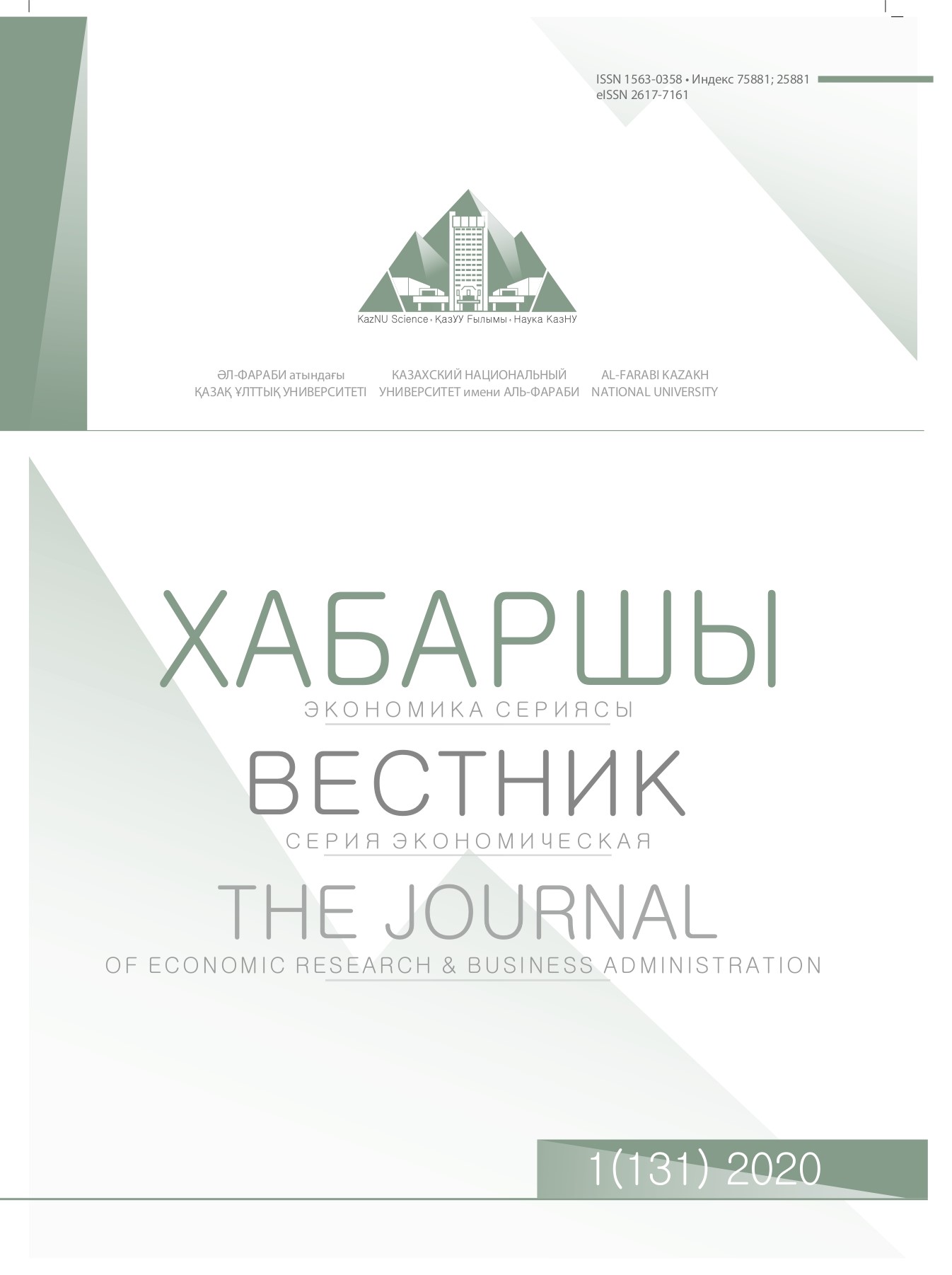Resonance in the economy of Kazakhstan with the introduction of Islamic finance
DOI:
https://doi.org/10.26577/be.2020.v131.i1.04Abstract
The relevance of the article is caused by the changes occurring in Kazakhstan related to the strategic
direction of the country’s development in order to be included in the top 30 most developed countries
in the world. Therefore, in order to achieve this high goal, it is necessary to successfully implement the
“Digital Kazakhstan” program, but one should not forget about the spiritual direction of development,
therefore the “Rouhani Zhangyru” program is being introduced in the country. An important problem is
the fact that it is the modernization of society and the country in the main directions that will help ensure
the global sustainable competitiveness of the country in the global space. In this regard, the issues
of diversification of financing of the real sector of the economy were considered, where efforts should
be directed towards the growth and strengthening of the positions of the private sector and small and
medium-sized businesses. However, in the digitalization age, large investments are required for the development
of IT technologies in various key sectors of the country’s economy. The purpose of this article
is to consider alternative sources of financing in the market that will contribute to the competitiveness
and sustainability of a country in a global world where there are chain reactions during crises. The results
of the research are presented in the work. The statistical data on the production volume of the real sector
from 2013–2017 were considered, and based on the results of the study, a model of the mechanism
for the implementation of an alternative financing method was proposed, i.e. Islamic finance, which is
based on spiritual moral and ethical principles. And the work presents key changes in the economy that
will be caused by a wide active introduction of Islamic finance.













